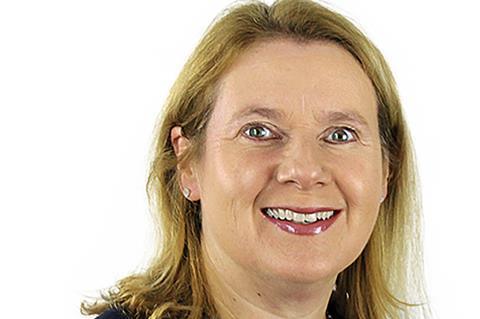Head of the family and divorce team, London

After growing up in Edinburgh, I did a non-law degree at Bristol university. I originally planned to be a probation officer so helped at the local prison. That influenced me to become a criminal lawyer. But after my conversion course, I ended up getting a training contract at a firm which did little crime and was well known for matrimonial law.
I was fortunate to train and qualify at Gordon Dadds, which was a leading family law firm at the time. I was given lots of contact with clients, which I loved. My favourite part of the job is still that first client meeting where I can find out their wishes and start to build that trusted relationship. I also enjoyed roundtable meetings (getting to see both spouses and their lawyers) and going to court to help achieve a good outcome, particularly where we were helping the underdog. One of my highlights was a final hearing for the wife of a member of a famous band. We also helped the wife get life-long maintenance after a very short marriage in the Court of Appeal case of Re C (the judgment of Ward LJ has stood the test of time).
I liked assisting people at a difficult time in their lives. I also liked the different aspects of the role: from the creativity and intellectual rigour required in negotiating a financial settlement, to being able to offer practical advice to help rebuild people’s lives. What I still love today is seeing how clients can develop during the divorce process and how they come out the other side, ideally more empowered.
So much has changed in the 25 years I have been a lawyer. These range from workplace attitudes (in my training I remember the odd disapproving comment about women wearing trousers) to technology. Communications are so much faster now instead of letters being actioned in days or weeks. This has generally been positive, particularly in international cases, where it has been essential. Increasing globalisation has been a notable feature which has had a big impact on my practice. And as challenging as it has been, the pandemic has been a game-changer in how we work with remote hearings, Zoom meetings, e-bundles and the like. Finally, while the 24/7 culture can affect our wellbeing as lawyers, I think our junior lawyers receive more support, guidance and formal training than I ever did.
'There are many more options now available for clients to resolve issues arising from family breakdown which simply were not around 25 years ago'
Shortly before my training, the Children Act 1989 took effect. This replaced the language of ‘custody’ with the concept of parental responsibility. However, like everything, it takes time for practice and society’s attitudes to catch up with the law. We are sadly not yet at the point where court is not seen as the only or first port of call for parents trying to agree child arrangements following separation. The public and indeed family lawyers still need to think about it more holistically, bringing in other professionals such as counsellors, mediators or child therapists. On a positive note, there are many more options available for clients to resolve issues arising from family breakdown which were not around 25 years ago, including collaborative law, private judging and family arbitration. Many lawyers now recognise the need to bring in other professionals to assist clients.
The removal of no-fault divorce, due in 2021, will be another monumental change. It is a pity there is not yet protection for cohabitants, unlike in my home country Scotland, despite this being an important societal trend in the last 25 years. The loss of legal aid for the majority going through separation is a sad feature I have observed, with the inevitable effect this has had of creating even more disparity between those who can afford legal advice and those who cannot.
I still struggle occasionally with difficult children cases. These cases are where I feel the voice of the child has not been properly taken into account by the process. Orders have been made which do not properly reflect their interests – and the ongoing conflict will have a long-term effect upon the children.
I am proud of a High Court Schedule 1 case (financial provision for unmarried mother). In this case my client had a severely disabled child and the father had moved abroad for tax reasons. We secured substantial capital orders to provide life-long financial provision. And I have had several reported French-related cases, including to the CJEU, which secured jurisdiction for my client in England.
As a mediator, I have also helped numerous couples resolve issues amicably. Even better, on at least two occasions they reconciled.































No comments yet